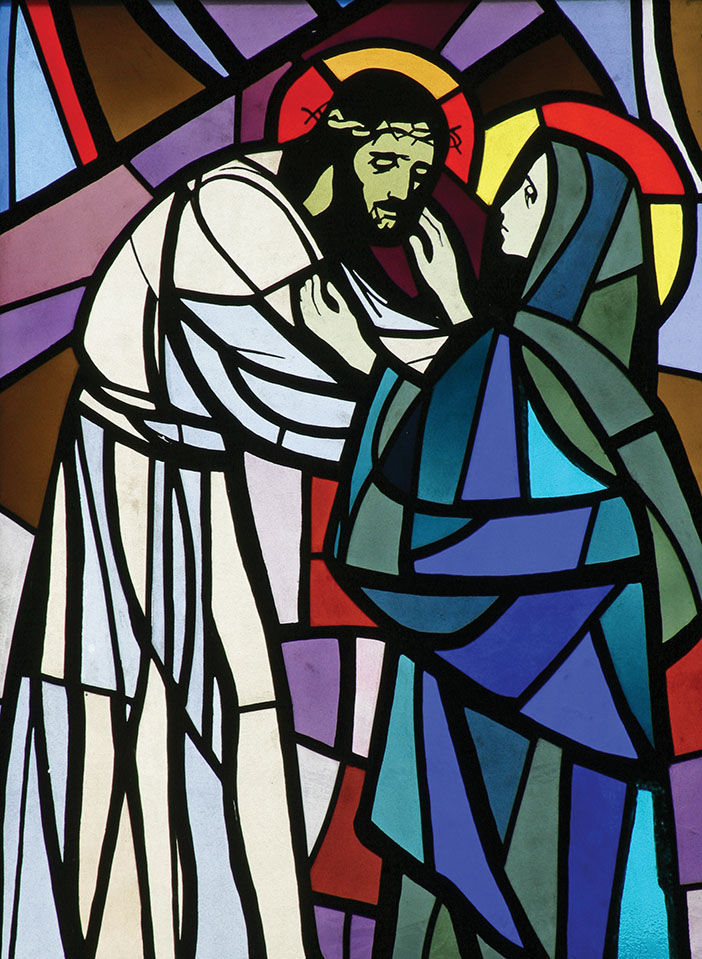Pope Francis is calling us to the outskirts. That’s a good thing to ponder during Lent.
We all like to stay within our “comfort zones.” We all like to hang out with people who buy the same books, watch the same movies, make roughly the same amount of money. We want people who validate us, not people who threaten, challenge or annoy us.
Christ, being human, had to have felt that way, too. But Christ was always, always willing to go way beyond his comfort zone. He began his public ministry by going out to the desert — by definition, a place beyond the human comfort zone.
His cousin John the Baptist had already been brutally murdered, on the whim of a harlot. Out in the desert, he had to have sensed the magnitude, if not the specifics, of what was in store for him.
For 40 days, he fasted and prayed. He was tempted, as we all are, to play it safe. Not to question too deeply the institutions of power, the systems of prestige, the culture of wealth and success that held sway in his time. Not to step outside the lines. Not to risk being misunderstood.
Those are the very same things that tempt us today. He understood human nature well (John 2:25).
Jesus honored his father and mother and he was also called to leave his father and mother in a way that must have been wrenching for all of them. He would gather disciples around him who were incapable of fully understanding him. He would be hounded by “religious” people from his own faith who were constantly trying to trip him up.
“Foxes have dens and birds of the sky have nests, but the Son of Man has nowhere to rest his head” (Matthew 8:20). That willingness to find their security and their lodestar in Christ alone is the hallmark of the saints.
That takes courage. In fact, one way to describe the resurrection is the victory of love over fear. We will be way more faithful followers of Christ if we follow out of love, rather than out of fear.
Out of fear, we’ll attend Mass on Sundays and check it off our list. Out of love, we’ll attend Mass four or five times a week because there’s nowhere we’d rather be.
Out of fear, we’ll write a check to charity, and check it off our list. Out of love, we’ll make the effort to meet and engage with a person who’s poor or needy.
Here’s an excerpt from a chapter from my new book, “Stumble: Virtue, Vice and the Space Between.” It’s a collection of essays, very much grounded in L.A., about what I like to call the daily tragicomedy of the cross. This is from a chapter on the virtue of faithfulness called “A Really Dangerous Thing”:
I find there are two types of people who attack me when they discover I’m Catholic. The first are lapsed or disgruntled Catholics who claim to be revolted by the Church but can’t stop talking about it. The second type, the Pharisees, are always trying to get me to say something bad about other (in their eyes, lukewarm) members of the Church. None of these folks can bear the hideous gap between how a follower of Christ should be and how a person who claims to be a follower of Christ actually is.
But you have to be somewhat nuts to sign up for something that is basically impossible to achieve. As Thomas Merton observed: “We must remember that in order to choose religious life, you must be a misfit …”
Christ did not confine himself to politics. He didn’t say, “We need more rights.” He didn’t say, “Let’s overthrow the Romans.” He said, “We need to live in total integrity and love.” In order to do so, we need a Church, and because we are never going to do so perfectly, the Church will inevitably also be imperfect.
To avoid the scandal of the cross, which is in some sense to say the scandal of the Church, is impossible. How could a Church made up of us be anything but imperfect? What Church would take us except a Church that tolerated imperfection? Where else would we drag ourselves to pray for the people we resent at any given moment — our mothers, our spouses, our kids, our friends, our politicians, the other people in church — but to Church? Where else would we go to be reminded of the perpetual death and perpetual rebirth but to Mass? In order to try resurrecting the Church we keep wrecking, we have to keep going to church — because we need Christ: to walk with us, to live.
Religion doesn’t mean acting better than other people: it means, if we’re lucky, getting to act a little better than we used to ourselves.
As the writer Madeleine L’Engle observed: “We do not draw people to Christ by loudly discrediting what they believe, by telling them how wrong they are and how right we are, but by showing them a light that is so lovely that they want with all their hearts to know the source of it.”

